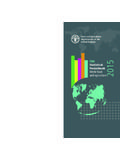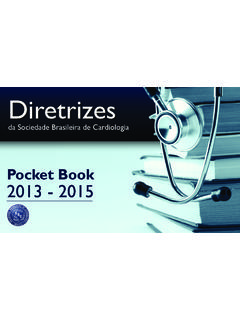Transcription of The Bönninghausen Repertory Therapeutic …
1 The B nninghausen Repertory Therapeutic Pocketbook Method 1 Samuel Hahnemann 1813 Hahnemann achieves great success treating typhoid fever The year of 1813 was one of triumph for Hahnemann. The contagious typhus fever, the typhus of the camps, prevailed throughout the length of Germany. Hahnemann attended cases of this terrible disease with a success that silenced his critics, and proved the superiority of the new method and of the truth of his principle. From Bradford s Life and Letters of Hahnemann 2 Constantine Hering 1800 - 1880 Hering wrote many articles, monographs and books.
2 It is in the sphere of drug provings, however, that Hering's effort shines at its best. It has been remarked by Nash and others that if Hering had done nothing else for medicine but the proving of the single drug Lachesis, the world would owe him an everlasting debt of gratitude. Dr. Hering proved 72 drugs, out of which the following are the most well known: Cantharis, Colchicum, Iodum, Mezereum, Sabadilla, Sabina, Psorinum, Nux moschata, Lachesis, Crotalus, Apis, Hydrophobinum, Phytolacca, Platina, Glonoin, Gelsemium, Kalmia, Ferrum-met, Fluoric acid, and Phosphoric acid.
3 3 Adolph Lippe Adolph Graf zur Lippe-Weissenfield was born May 11, 1812 near Goerlitz, in Prussia, and died on January 23, 1888 in Pennsylvania. In the fall of 1838 Lippe registered in the first and only hom opathic medical college in the world, the North American Academy of the Hom opathic Healing Art in Allentown, Pennsylvania, also known as the Allentown Academy. Afterward Lippe moved from Reading to Pottsville, PA in 1841 where he practiced with success and growing ability until 1844 when moving to Carlisle, PA. During this time, Dr. Lippe made a name for himself with his treatment of epidemics in the Cumberland Valley.
4 1812-1888 4 Phineas Parkhurst Wells Dr. Wells was one of the founders of the American Institute of Hom opathy in 1844, and reluctantly a founder and first president of The International Hahnemannian Association in 1881. He was the co-editor of the American Hom opathic Review from 1862-66. Dr. Wells' own cure by B nninghausen in 1859 further galvanized his belief in Hahnemannian hom opathy. As a result of this experience Wells, next to Adolphe Lippe, became the most stalwart defender and elucidator of Hahnemann's principles. Wells' lectures on hom opathic practice at the New York Homeopathic Medical College were highly esteemed, yet he declined their publication by his enthusiastic students.
5 1808 - 1891 5 Adolph Lippe 1864 Adolph Lippe becomes president of the Hom opathic Medical College of Pennsylvania. In 1867 Constantine Hering leaves. Hom opathic Medical College of Pennsylvania - 1848 - Philadelphia 6 The Therapeutic Pocketbook Repertory (Taschenbuch) 7 More than a Repertory ! The experience of nearly a century has verified the truth of B nninghausen s idea and enabled us, in the use of his masterpiece, The Therapeutic Pocketbook, to overcome to a great extent the imperfections and limitations of our materia medica. Stuart Close, MD 1860 1929 8 The B nninghausen Repertory Therapeutic Pocketbook Method 9 Other Books by Dimitriadis 10 On-Line Course by Dimitriadis 11 History of the Repertory Development and Utilization 12 What is a Repertory ?
6 The word Repertory is derived from the Latin Repertorium, and means a place (storehouse, treasury, repository) in which things are placed so they can be easily found, as an index of a book. 13 Is a Repertory necessary? May the devil take all the repertories. They destroy that which belongs together and unites points, which are foreign to each other, only for the sake of adhering to the A, B, C of Children s reading books. Julius Aegidi 14 Hahnemann - the Repertory For the convenience of treatment, we require, merely to jot down after each symptom all the medicines which can produce such a symptom with tolerable accuracy, expressing them by a few letters and also to bear in mind the circumstances under which they Preamble to Materia Medica Pura 15 J.
7 T. Kent the Repertory True, some men do some good work without the Repertory , but they also do poor work, more than they would do with it. James Tyler Kent 16 George Vithoulkas - Repertory The Repertory has always been an indispensable tool in my practice. The absence of books on the desk may indicate experience and knowledge in many other professions. For a homeopath it only proves ignorance. Foreword to Synthesis 7, George Vithoulkas 17 Limits of the Repertory A Repertory is never an end in itself. It is the duty of the physician to go back to the materia medica and establish an actual connection.
8 18 Limits of the Repertory Different repertories each provide a unique plan of construction. It is said that each one has its own scope and limitation. None are perfect! 19 Limits of the Repertory Cyrus Boger pointed out that Every Repertory is useful, unfortunately no one is complete . Materia medica is ever enlarging. Every day there are new clinical experiences and information from new provings being added. 20 Clemens Von B nninghausen 1846 The Therapeutic Pocket Book - Clemens Von B nninghausen 21 Clemens Von B nninghausen Dr. B nninghausen was born to one of the oldest noble families of Westphalia, Germany.
9 His full name was Clemens Maria Franz Baron Von B nninghausen. He was Baron by inheritance, a lawyer by profession, and an agriculturist by natural inclination. He held respected and responsible posts in Germany including auditor and privy council of the King, general secretary of the taxes, Royal Librarian, treasurer of the pensions and head of the Topographical Institutes. As a Doctor of Law, Dr. B nninghausen practiced as a lawyer for some time and later became a judge. Because of his interest in horticulture, he was made Director of Botanical Gardens at Munster.
10 Here, he came to be known as the "Sage of Munster." 1785-1864 22 History of Repertories Hahnemann first attempted to create a Repertory , adding an alphabetical index to his Fragmenta de viribus Medicamentorum Positivis Sive in Sano Humanis Corpore Observatis published in 1805, and undertaking to further compilations Hahnemann s Symptomen-Lexikon (symptom register) in 1817. 23 History of Repertories Hahnemann mentions in a correspondence to B nninghausen - Sixteen years ago I produced a symptom-lexicon of the then proven remedies. 24 History of Repertories My Repertory was only an alphabetical register, which could at best provide service when looking for the particular remedy symptoms.







![[ 家賃の支払・算定 ] - sendai-kensetsu.or.jp](/cache/preview/7/f/4/5/c/5/0/7/thumb-7f45c5072faa1529eb851daa9e2f9fe7.jpg)